- sort orderDefault
Photo title, A → Z
Photo title, Z → A
✔ Date created, new → old
Date created, old → new
Date posted, new → old
Date posted, old → new
Visits, high → low
Random - Google Map
- map
 home / Arachnida · voragyviai / Araneae · vorai / Araneidae · kryžiuočiai / Araneus marmoreus · marmurinis kryžiuotis
home / Arachnida · voragyviai / Araneae · vorai / Araneidae · kryžiuočiai / Araneus marmoreus · marmurinis kryžiuotis

-
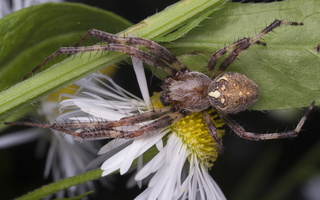 Araneus marmoreus male · marmurinis kryžiuotis ♂
Araneus marmoreus male · marmurinis kryžiuotis ♂
-
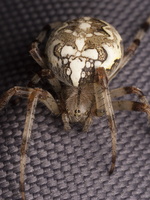 Araneus marmoreus female · marmurinis kryžiuotis ♀
Araneus marmoreus female · marmurinis kryžiuotis ♀
-
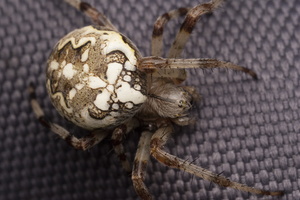 Araneus marmoreus female · marmurinis kryžiuotis ♀
Araneus marmoreus female · marmurinis kryžiuotis ♀
-
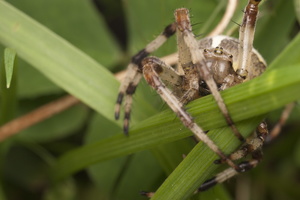 Araneus marmoreus female · marmurinis kryžiuotis ♀
Araneus marmoreus female · marmurinis kryžiuotis ♀
-
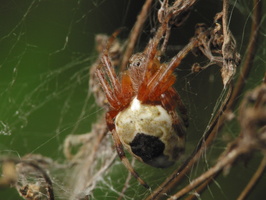 Araneus marmoreus female · marmurinis kryžiuotis ♀
Araneus marmoreus female · marmurinis kryžiuotis ♀
-
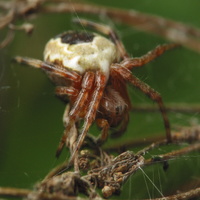 Araneus marmoreus female · marmurinis kryžiuotis ♀
Araneus marmoreus female · marmurinis kryžiuotis ♀
-
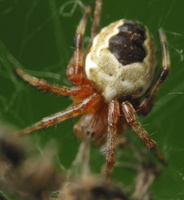 Araneus marmoreus female · marmurinis kryžiuotis ♀
Araneus marmoreus female · marmurinis kryžiuotis ♀
-
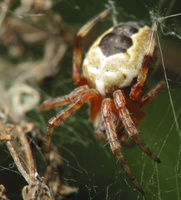 Araneus marmoreus female · marmurinis kryžiuotis ♀
Araneus marmoreus female · marmurinis kryžiuotis ♀
Araneus marmoreus · marmurinis kryžiuotis
- marbled spider, pumpkin spider
- Marmorierte Kreuzspinne
- marmurinis kryžiuotis
- marmora riteņzirneklis
- krzyżak dwubarwny
en.wikipedia.org/wiki/Araneus_marmoreus It has a Holarctic distribution. Female 10.0-15.5 mm, male 6.5-9.5 mm.
Two main color forms are found. Araneus marmoreus var. marmoreus has an orange abdomen with brown to black marbling. It usually has a distinct folium with dark edging. Araneus marmoreus var. pyramidatus has a much paler abdomen, with a single dark, often reddish-brown, mark at the rear. However, the species can have a wide range of colorations and folium patterns. Var. pyramidatus is more common in Europe, and uncommon in North America. The cephalothorax is commonly yellow to burnt-orange with a central dark line and dark lines down either side. The femurs are often red in color with black and white banding beginning on the tibia, metatarsus, and tarsus. The legs may instead have a light brown banded pattern. The venter has a black band enclosed by white brackets.
Egg cocoons, which contain several hundred eggs, are generally deposited in October and are constructed of white silk formed in a flattened sphere. Immature spiders emerge from the cocoons in spring. Adults are seen from midsummer until the first hard freeze of fall. The webs are found in trees, shrubs and tall weeds, and grasses in moist, wooded settings and can frequently be found along the banks of streams. The webs are oriented vertically and have a "signal" thread attached to the center that notifies the spider when prey has been captured. Unlike Argiope garden spiders, Araneus marmoreus hides in a silken retreat to the side of the web (at the end of the signal thread). The retreat can be made from leaves folded over and held together with silk, silk only, or under leaves and other debris.